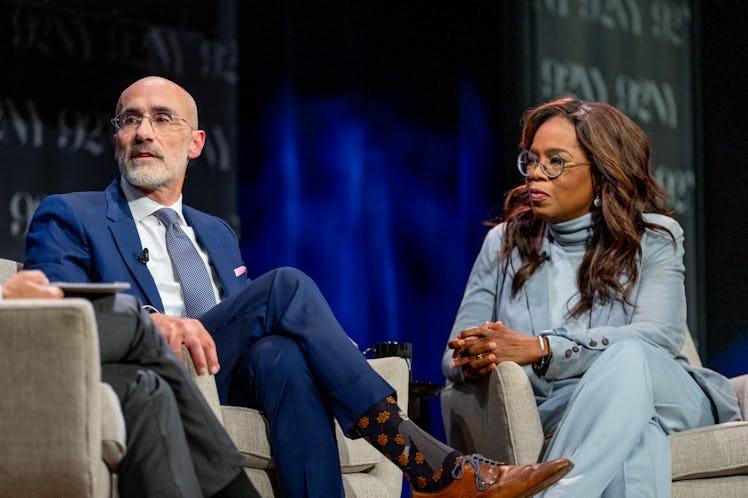The One Lesson Parents Need To Teach Their Kids, According To A Happiness Expert
“One of the things that I see is that parents are too freaked out about their kids being unhappy.”

Arthur Brooks, author, public speaker, Harvard professor, and happiness expert, was recently a guest on Today With Hoda & Jenna to promote his new book, “Build the Life You Want: The Art and Science of Getting Happier.” During their discussion, Brooks was asked by Jenna Bush Hager about a mistake parents make about happiness and he highlighted an issue he comes across all too often: parents don’t allow their kids to be unhappy.
“One of the things that I see is that parents are too freaked out about their kids being unhappy,” Brooks responded. “They’re freaked out about it. A lot of helicopter parenting is because they’re thinking about their kid's feelings all the time, and they’re trying to wipe out the bad feelings, and that’s a mistake.”
“Your kid needs to be alive,” he continued. “Your kid needs to learn; your kid needs to grow. You want your child to live a full life of happier-ness.”
Happier-ness. An interesting phrase, and reminding yourself that it’s okay for your kids to be something other than happy is advice we should all keep in mind. When well-meaning parents protect kids from consequences (such as doing homework for them, so they won’t get in trouble at school), it deprives kids of an opportunity to foster independence — including the independence to feel big, uncomfortable feelings like failure and sadness.
Few of us set out to become helicopter parents, but it’s never easy to step back as a parent and let kids struggle. But studies have shown that when parents do step in unnecessarily, everyone feels better in the short term but experiences more stress in the long term. It’s an uncomfortable dance — but an important one. Well-rounded kids feel all the emotions. And often they are, to steal a phrase from Brooks, the happier-est.